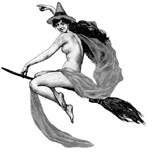
Can Teenagers Survive Marilyn Manson?
TRYING TO BE ANYTHING BUT A NERD OR A NOBODY
I have never heard a song by this “Marilyn Manson” character. But I have read the horror stories about his “concerts” — about the salaciousness, homosexuality, and anti-Christian scatology that are central to his performances. His choice of a stage name that links the images of Marilyn Monroe and Charles Manson speaks volumes.
Many Christian parents are seeking some way to minimize his influence on their children, and I have no intention of calling for less vigilance. There is no place for this “music” in a Christian home. Do try to keep your kids away from it!
But what if you can’t? Certain children who want to listen, will. There are too many places — car stereos, portable cassette players, and the like — for them to gain access. It is not like the days when most homes had just one hi-fi in the family room.
What should parents do if they think their children have become part of the Marilyn Manson audience? How much of a family confrontation is in order? Are there cases when parents can ride through this phenomenon, look the other way and hope for the best?
You May Also Enjoy
"Novitiate" is a film to be expected at the bitter, burnt-out end of the sexual revolution. It is not so much a movie as a cry for help.
The Department of Defense wants to sell pornography, and even though the law prohibits them, they found a way to do it.
What happens when a fairly obscure writer picks a fight with a Christian YouTube celebrity who has over 200,000 followers?

